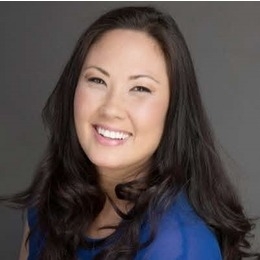Top 10 things I wish people knew about insurance
Make sure your insurance covers any new risks
When your risks change, your insurance needs to change too. For example, I've spoken to many homeowners who start renting out their prior homes without switching to a landlord policy. Homeowners policies are based on occupancy and use, and once you start renting any portion of your home, your policy is essentially void.
Consider this example I learned in training, where a homeowner started renting out an apartment above a detached garage through Airbnb without adding a home-sharing endorsement. A tree fell on the garage, destroying the apartment, and the insurance company denied the claim due to a breach of contract.
The same goes for auto insurance if you decide to start delivering for Doordash, driving for Uber, or renting out your vehicle through Turo. Not all companies will allow their policyholders to do this. If you don't let them know, you've essentially broken the contract, and they may deny claims.
Understand why using an insurance agent is valuable to you
Always work with an agent or broker who has access to multiple companies. If you call a 1-800 number on an insurance company website, you may only get quotes from that one company. It's like shopping at Target or Walmart - you can buy almost anything, from groceries to clothes, but only from that single store.
On the other hand, an independent insurance agent is like a personal shopper who can visit multiple stores to find exactly what you need. They can get kids' clothes at Target, then head to the mall for a suit from your favorite tailor. They aren't confined to one company's offerings and can find the best coverage and pricing by comparing different insurers.
Sounds better, doesn't it?
Home and auto insurance is not health insurance
This one's important. Home and auto insurance are not like health insurance. Your auto and home insurance rates are based on your risk and likelihood of filing a claim, and frequent claims can impact your rates and eligibility.
Unlike health insurance, which covers routine wellness visits to emergency care, home and auto insurance pricing is based on usage. Typically, fewer claims result in lower rates. You're paying for auto and home coverage in case of unforeseen and catastrophic losses, not for routine maintenance. Even towing, roadside assistance, and reporting a no-fault accident are considered claims and can affect your rates.
Don't compare your insurance rate to others
Comparing your home insurance rate to someone else's is like comparing your mortgages. Numerous factors go into determining your rate, such as your house's size, building materials, flood risk, distance from a fire station, and more.
The same goes for car insurance. One person might say, 'I have one car and one driver, and I pay $X,' without considering that their car is a Tesla while their friend's is a Corolla. One may have multiple claims while the other has none. One might have had their license for less than three years while the other has been driving for 20 years. One could live in a higher-theft area. You get the idea. It's impossible to make an accurate comparison.
Update policies as you progress in life
As you go through life, make sure your insurance coverage evolves with you! When you're right out of college and renting your first apartment, you might choose the cheapest minimum level of insurance, but when you buy your first condo or townhouse you need to raise your liability limits to protect your new investment.
You'll want to review and up your insurance again if you purchase a single-family home, have a baby, get teenage drivers, or start a small business. Eventually many of us end up with an umbrella policy, life policies, and more.
Get separate jewelry insurance policies
Whenever possible, put jewelry on a separate jewelry policy rather than listing it on a home or renters policy. Insurance companies typically use a CLUE (Comprehensive Loss Underwriting Exchange) report to assess risks, which includes claims history, property details, and policy information.
Jewelry insurance companies generally don't report claims to CLUE, helping to keep your property insurance rates unaffected if you need to file a jewelry claim.
I had a client whose home insurance doubled despite having no home insurance claims. When I researched their situation, I found a $10,000 mysterious disappearance claim on their CLUE report. The client had lost their wife's engagement ring, which was listed on their homeowner's policy. This showed up as a $10,000 claim, causing new insurance companies to increase their quote accordingly.
Claims follow you
Insurance claims are attached to your home, car, and personal record, and can impact you for up to 7 years. Think of a scrape that heals but leaves a scar—just because it doesn't hurt anymore doesn't mean it didn't leave a mark. Claims typically follow you for 3-7 years.
Some companies consider claims for up to 3 years, others up to 5, and currently, some even up to 7 years for underwriting. So, if you have a car accident in 2024 and shop for insurance the following year, most companies may increase your rate based on your claims history. Over time, the impact of that accident may lessen, being considered by some companies only after 3 years and by others after 5 years. An insurance agent can help you navigate this situation.
Pets can limit your options
Pets can limit the number of insurance companies willing to quote you for renters, landlord, and homeowner's policies. Exotic animals, farm animals, and certain breeds of dogs are often excluded. Different insurers have various guidelines for pets.
My son adopted a non-venomous corn snake native to Virginia, and because of this, 95% of companies won't even give us a quote. The same can happen if you get chickens, a goat, or a donkey. It can be frustrating but not all companies are willing to accept these types of risks.
It doesn't always make sense to bundle with one company
While bundling home and auto can save money, that's not always the case. When you work with so many insurance companies like I do, you learn that while one company's auto policies are well priced, their home insurance rates might not be, and vice versa.
I look at all these options for my clients and let them choose. But recently, there has been a noticeable trend towards separating policies to maximize both coverage and cost-effectiveness.
Local agents cost you nothing extra
It won't cost you anything to use a local insurance agent. Our commissions are automatically built into your premium. So, give yourself the advantage of having a knowledgeable local contact who can guide you through shopping for insurance, covering risk, claims, and more.
Don't hesitate to reach out to me and we'll review your insurance and see if we can find you a better fit.


